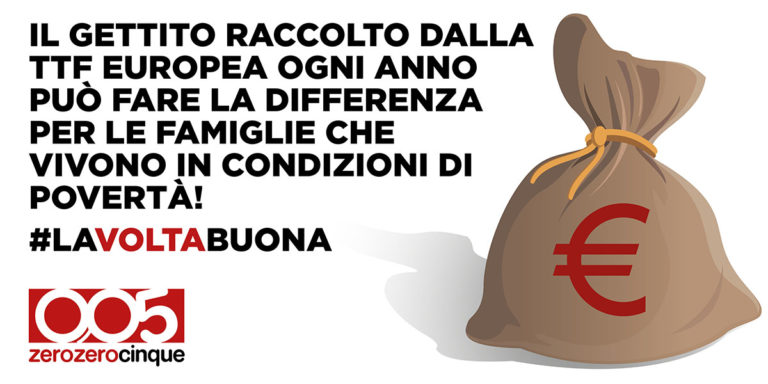Active shareholders at COP25: «We help companies on climate targets»
The engagement report of Shareholders for Change (network of responsible investors) was presented in Madrid today: 74 companies targeted in 2019
«Companies are living institutions in which investors, managers, employees, customers and other stakeholders challenge the status quo in their own transgressive ways» reads the introduction to the 2019 engagement report by SfC – Shareholders for Change , presented today in Madrid. «It is only through this systematic challenge that companies remain lively and continue functioning».
This is a quote from the book “Contesting the corporation”, by professors of business economics Peter Fleming and Andrew Spicer, which summarises in a few lines the sense of shareholder engagement but also of critical consumption or trade unionism: companies regularly need some healthy jolts, otherwise they tend to rest on the laurels of their past successes and, in the end, may lose their competitive advantage and decline.
Focus from Italy to US
The report of SfC, a network of European institutional investors founded in 2017, is full of such “jolts”: the eleven members of the network met with 74 companies in 2019, most of them based in Italy, France, the United States and Germany.

On the basis of the report “Bad Connection”, published by SfC in 2018, letters were written to Vodafone, Orange, Deutsche Telekom and Telecom Italia, the main groups in the European telecommunications sector, asking for greater transparency on the systems they use to pay less taxes: the so-called “tax optimisation” which, in some cases, can lead to tax avoidance or evasion and attract investigations and sanctions by tax authorities, with prejudice to all shareholders.
«All companies have responded, except for Orange» explains Aurélie Baudhuin, president of SfC and deputy general manager of Meeschaert Asset Management, one of the French founding partners of the network. «With Deutsche Telekom, a call was also organised with the participation of the group’s head of taxation. We are now preparing new questions, with the help of an university researcher who is expert in international tax systems».

United we can
The main purpose of Shareholders for Change is to put together engagement initiatives with companies that were previously conducted by individual members alone. «We want to create critical mass» Baudhuin continues. «Asking questions on behalf of a network that manages 25 billion euros has a much greater impact. Corporations take us more seriously».
To find out which specific questions should be asked on social, environmental and governance issues, the network has committed itself to regularly publish new research on specific issues or sectors. Such as “Bad Connection”, or “Rare metals supply chains”, a report published in July this year that sheds light on social and environmental risks in the supply chain of rare metals.

«Rare metals are essential raw materials for the much needed transition to clean energy sources. They are found in electric car batteries, wind turbines or photovoltaic panels» explains Aurélie Baudhuin. «But they are often extracted by violating workers’ rights or polluting groundwater. That’s why, based on the research, we started writing letters to a number of companies in the chemical, automotive and energy sectors to understand if and how they are trying to minimise these risks».

Letters and calls with companies are just some of the ways in which active shareholders address companies. For many members of SfC, the main tool of engagement is participation in annual general meetings (AGMs), which are held every spring, for the approval of the financial statements.
«These are unique opportunities, where you have the chance to take the microphone and ask questions to the entire board of directors, in front of major shareholders and journalists» explains Jordi Ibáñez, director of Fundacion Finanzas Eticas (FFE), Spanish founding member of Shareholders for Change. In 2019 Ibáñez attended the meeting of the Spanish energy company Endesa, controlled by the Italian company Enel, presenting a flurry of questions, in particular on the timing of Endesa’s exit from coal and nuclear power. «The answers were unsatisfactory» explains the director of FFE, «but we do not give up. We will be back at the 2020 meeting and, in Italy, Fondazione Finanza Etica (also a founding member of SfC) will re-launch some of our questions at the Enel meeting».
Climate related issues are a priority
Climate related issues were very popular in 2019. «This year, most of our actions focused on climate change. We have asked companies to be more committed to reducing their emissions and becoming more transparent about their strategies for a just transition to more sustainable production models» explains Aurélie Baudhuin. «That’s why it’s so significant that our second annual meeting for 2019 is held in Madrid, during the UN COP25 conference on climate change».
According to an analysis by Arabesque S-Ray (a provider of data for investors, ed.) on emissions and climate data published by almost 3,000 listed companies worldwide, more than 80% of major global companies are unlikely to meet the climate targets set by the Paris Agreement by 2050.
SfC – Shareholders for Change engaging @Naturgy on climate related issues during the network’s winter meeting in #Madrid now. https://t.co/yCacgQxycO @LauraBerryOFA @vdangerio @cesare_vitali @FFinanzaEtica @EticaSgr @ubiggeri @ICCRonline @meeschaert @A_Baudhuin @ETicaNews pic.twitter.com/qTy6W7MxEj
— Mauro Meggiolaro (@meggio_m) December 12, 2019
«This must change as soon as possible if we want to avoid the worst», continues Baudhuin. «Investors have a great opportunity and responsibility to steer corporate strategies in the right direction: green washing should belong to the past».
SfC’s meeting, spanning over two days, hosted also two training sessions: one on the ESG performance of listed Spanish companies, held by the Observatorio de Responsabilidad Social Corporativa (Spanish Observatory on CSR) and one on the most recurrent schemes used by multinationals to elude taxes, held by Tommaso Faccio, researcher in the field of corporation tax at the Nottingham University Business School.
The training sessions were followed by a meeting with senior representatives of the Spanish utility Naturgy, where SfC members asked questions on the company’s climate strategy and just transition plan.


